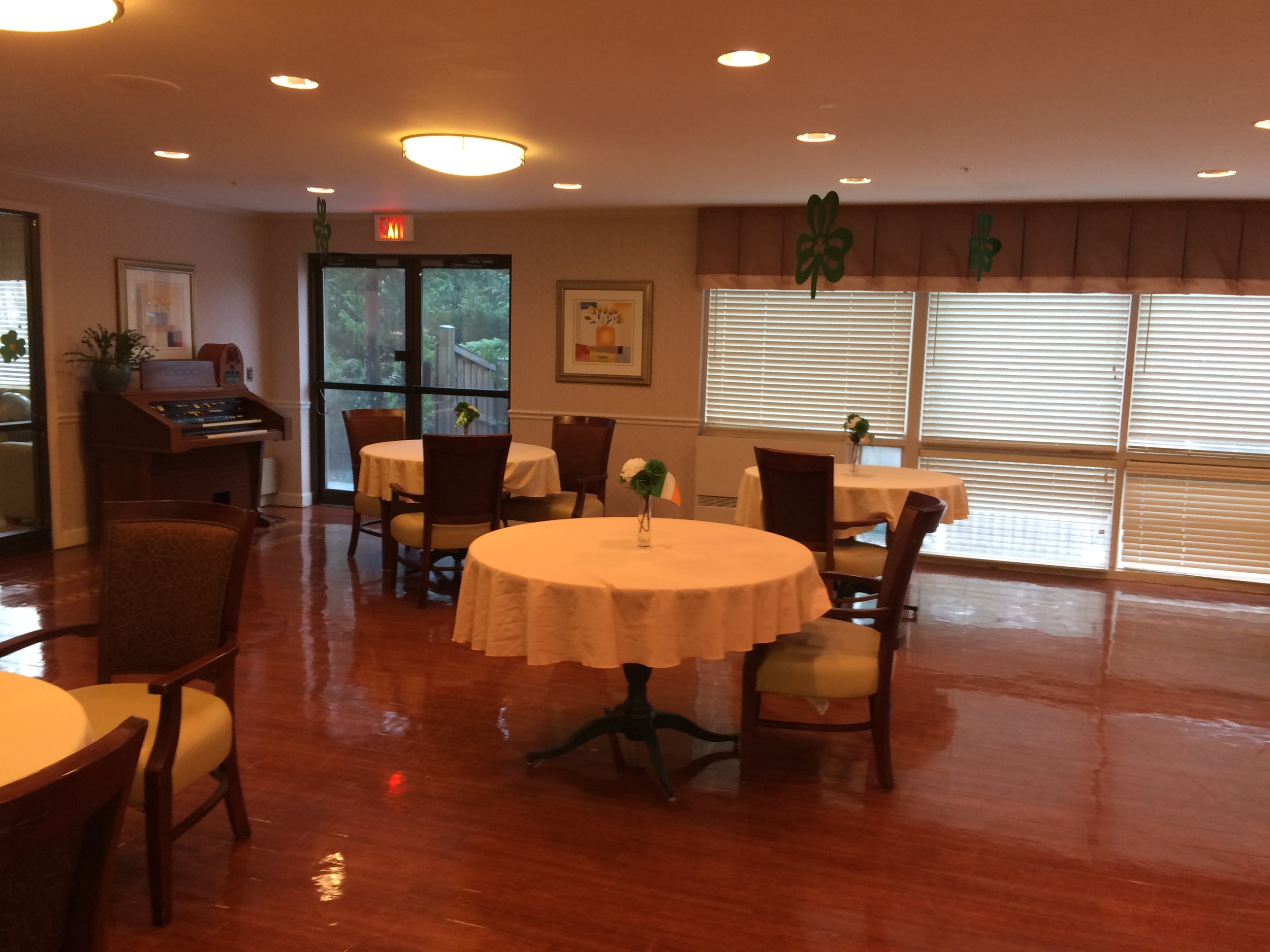Brightview Fallsgrove
/A few weeks ago I had the opportunity to tour Brightview Fallsgrove, an assisted living and memory care community in Rockville. Wendy Papuchis, the Community Sales Director, was my tour guide. She was extremely knowledgeable and enthusiastic about Brighview Fallsgrove, and I enjoyed my time with her very much.
There are 70 Assisted Living apartments at Fallsgrove, and 24 specialized dementia care apartments (this specialized dementia care part of the neighborhood is called Wellspring Village). Brightview Fallsgrove is a lease community, meaning other than a one-time only community fee (right now it’s around $5000), you pay by the month for your apartment, rather than having to buy in to the community. You are required to sign a one-year lease when moving into Brightview Fallsgrove, but you can easily get out of the lease with 30 days notice.
Brightview Fallsgrove’s public spaces had a warm and cozy feel to them. Above and below are a couple of pictures of their bistro area, where residents can come and grab coffee and a snack and socialize whenever they’d like.
There are several apartment choices for residents in different sizes—studios, one bedroom, and two bedroom units are all available. The care residents receive is more bundled than in other assisted living places I’ve visited. Everyone receives 5 hours of care as part of their monthly rent. If a resident needs more than that, they can pay extra for different care plans.
Brightview Fallsgrove focuses on resident choice and resident independence. Everyone has a personalized care plan there. Not every resident needs, for instance, a night check, or a lot of care. There’s no nurses station, which helps give Brightview Fallsgrove more of a community feeling. There are aides around, however, to help residents whenever they need it. They can wear a call pendant and just press a button if they need help. Every resident has a primary aide, so that the aide and resident have a chance to get to know one another. There are also wellness nurses on staff to provide care to the residents, along with a number of specialists and therapists under contract that provide in-house services.
Residents are allowed to come and go when they please, and to attend (or not) whatever events and classes they choose. There are also no visiting hours—visitors are welcome whenever they’d like to come. The dining room has specific meal times, but it’s also open all day, if someone wants to just drop by at a non-meal time for something light like soup or a sandwich.
Brightview Fallsgrove seems like a pleasant and flexible place to live. But it provides the care residents expect from an assisted living or memory care community.




